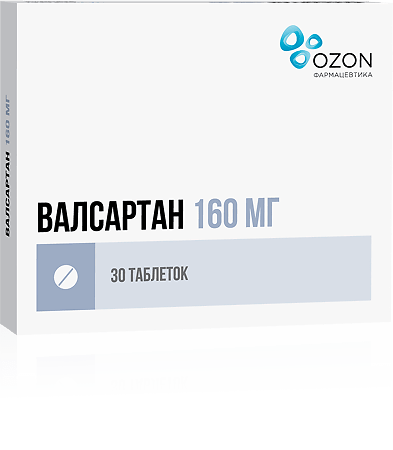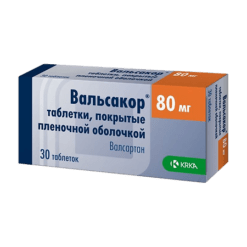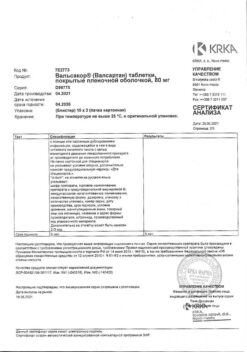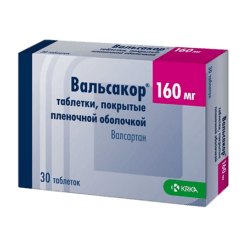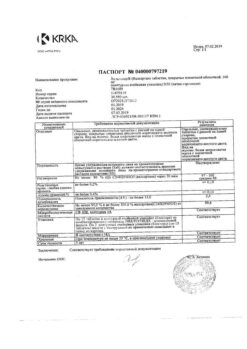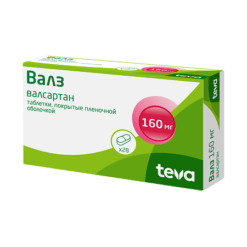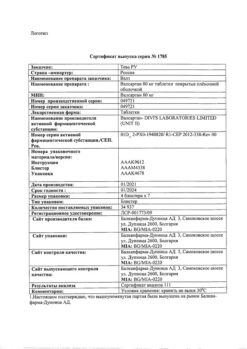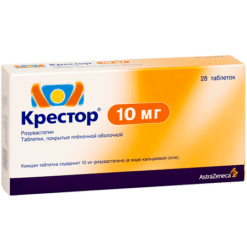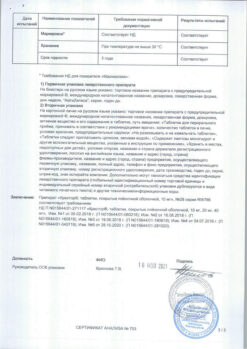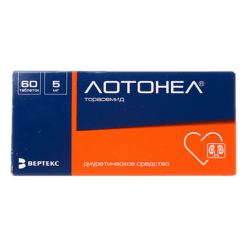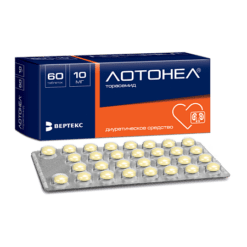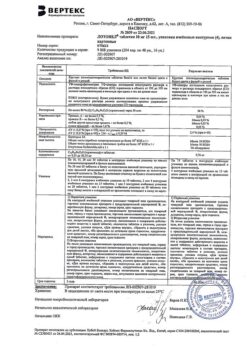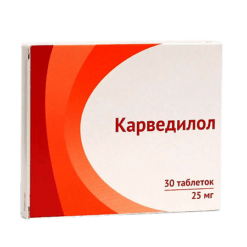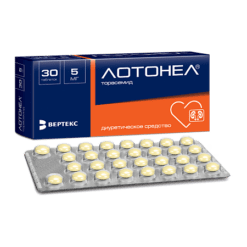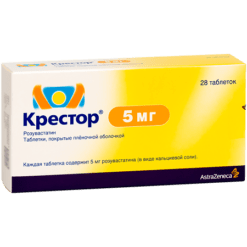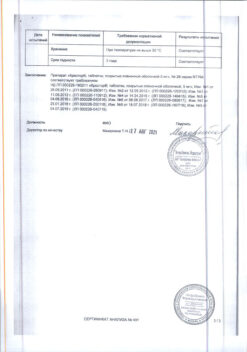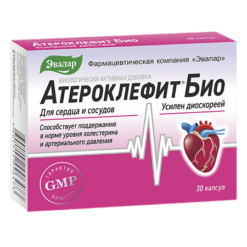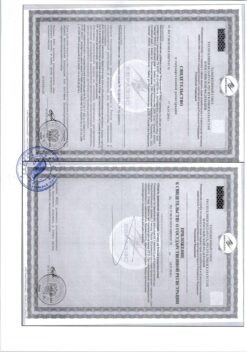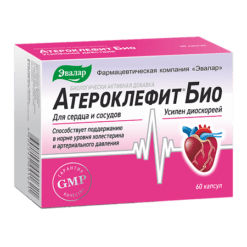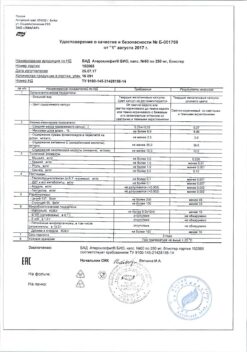No products in the cart.
Valsartan, tablets 160 mg, 30 pcs.
€1.00
Out of stock
(E-mail when Stock is available)
Description
Valsartan is a peripheral vasodilator with hypotensive effect.
A specific blocker of AT1 angiotensin II receptors, does not inhibit ACE; does not affect the content of total cholesterol, TG, glucose and uric acid in the blood.
The beginning of the effect is observed 2 hours after intake, the maximum effect is after 4-6 hours; duration of action is more than 24 hours.
After regular use the maximum decrease of BP comes in 2-4 weeks. There is no withdrawal syndrome in case of abrupt discontinuation.
Indications
Indications
Active ingredient
Active ingredient
Composition
Composition
1 tablet contains:
Active ingredient:
valsartan 160 mg
How to take, the dosage
How to take, the dosage
Overly, before or with meals.
In case of arterial hypertension: 80 mg once daily. Maximum daily dose is 320 mg.
CRC: 40 mg 2 times a day, with gradual increase to 80 mg 2 times a day, with good tolerance to 160 mg 2 times a day. The maximum daily dose is 320 mg in two doses.
After myocardial infarction: treatment begins within 12 hours after the myocardial infarction at an initial dose of 20 mg 2 times daily, with subsequent dose increases (40 mg, 80 mg, 160 mg 2 times daily) over several weeks, until reaching the target dose of 160 mg 2 times daily. Reaching a dose of 80 mg twice daily is recommended by the end of the 2nd week, 160 mg twice daily by the end of the 3rd month of therapy. The maximum daily dose is 320 mg in 2 doses.
Interaction
Interaction
Potassium-saving diuretics, K+ preparations, salts containing K+ increase the development of hyperkalemia; diuretics increase the hypotensive effect.
Special Instructions
Special Instructions
Blood Na+ and/or BOD are corrected prior to treatment.
In renovascular hypertension, regular monitoring of urea and creatinine in blood is necessary. In case of pregnancy during the treatment the drug should be canceled.
With caution, use in people engaged in activities requiring increased attention and rapid motor and mental reactions.
Contraindications
Contraindications
Hypersensitivity; pregnancy, lactation, age under 18 years.
With caution.
Hepatic insufficiency with biliary obstruction; renal insufficiency (CKR less than 10 ml/min), including patients on hemodialysis, sodium restricted diet, renal artery stenosis (bilateral or single kidney), conditions accompanied by decreased BOD (including diarrhea, vomiting).
Side effects
Side effects
Frequency of side effects: very common (1/10 or more); common (1/100 or more, less than 1/10); infrequent (1/1000 or more, less than 1/100); rare (1/10000 or more, less than 1/1000), very rare (less than 1/10000).
Particularly (in patients with CHF) – orthostatic hypotension and decreased BP; infrequent (when used after a myocardial infarction) – decrease of BP, heart failure; very rare – vasculitis.
Respiratory system: infrequent – cough.
The digestive system: infrequent – diarrhea, abdominal pain, nausea (when used after a myocardial infarction); very rare – nausea.
Nervous system disorders: frequently (in patients with CHF) – dizziness, including postural dizziness; infrequently – fainting (when used after a myocardial infarction), headache (in patients with CHF), insomnia, decreased libido; rarely – dizziness; very rarely – headache.
Sensory organs: infrequent – vertigo.
Hematopoietic organs: often – neutropenia; very rare – thrombocytopenia.
Allergic reactions: very rare – angioedema, rash, pruritus, serum sickness.
Musculoskeletal system: infrequent – back pain; very rare – arthralgia, myalgia.
Transureting system disorders: frequently (in patients with CHF) – renal dysfunction; infrequently (in patients after myocardial infarction) – renal dysfunction, renal failure, including acute; very rarely – renal failure, renal failure, including acute.
Mechanical system disorders: infrequent hyperkalemia (in patients with CHF and in case of use after myocardial infarction).
Infections: often – viral infections; infections of the upper respiratory tract, pharyngitis, sinusitis, very rarely – rhinitis.
Other: infrequent – fatigue, asthenia, edema.
Laboratory measures: decrease of Hb and hematocrit, hypercreatininemia, hyperbilirubinemia, increase of liver transaminases activity, increase of concentration of urea serum nitrogen.
Overdose
Overdose
Symptoms: decreased BP.
Treatment: gastric lavage, intravenous 0.9% NaCl solution.
Similarities
Similarities
Additional information
| Conditions of storage | Store in a dry place, protected from children. |
|---|---|
| Manufacturer | Ozon, Russia |
| Medication form | pills |
| Brand | Ozon |
Other forms…
Related products
Buy Valsartan, tablets 160 mg, 30 pcs. with delivery to USA, UK, Europe and over 120 other countries.

